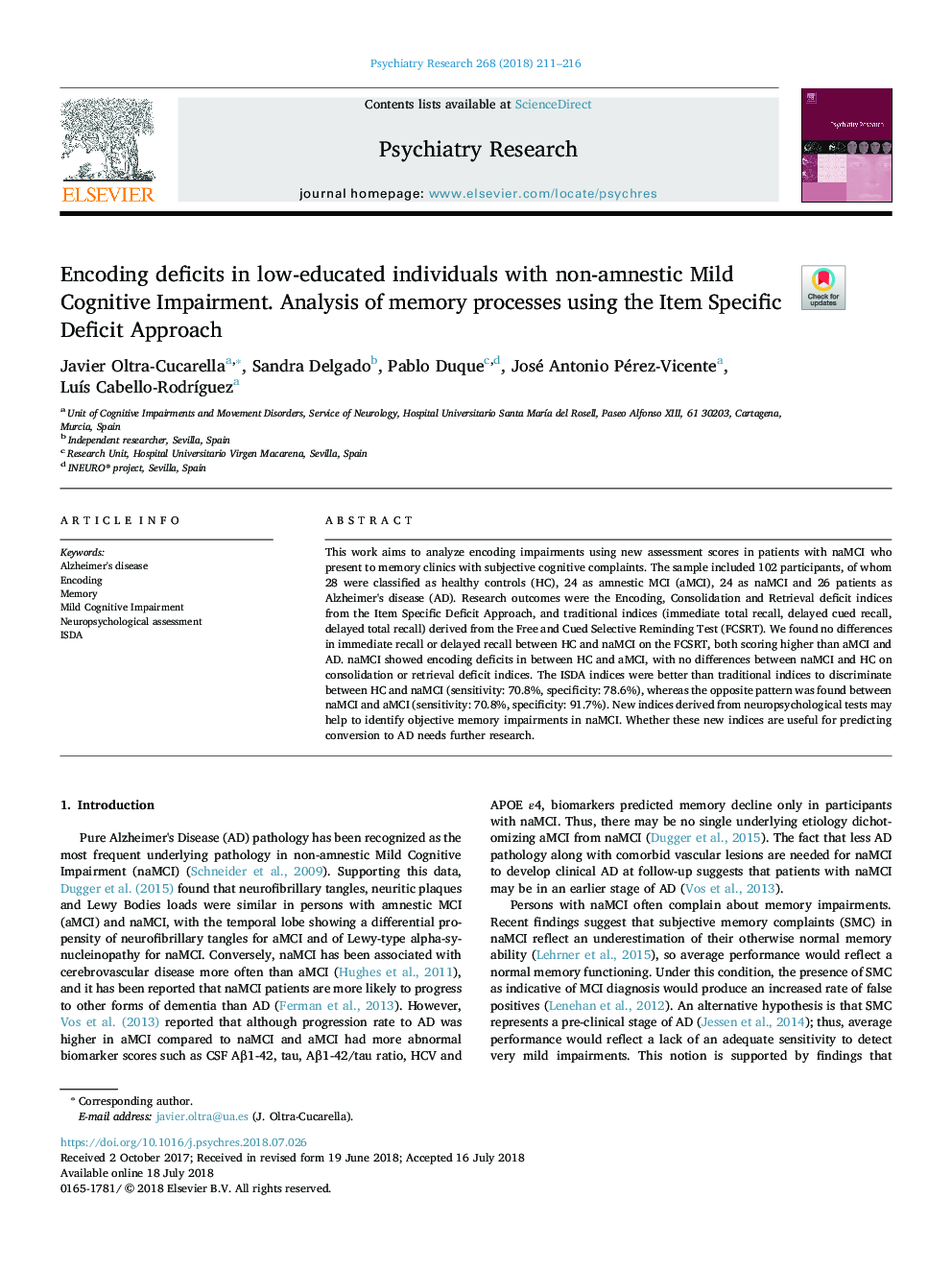| کد مقاله | کد نشریه | سال انتشار | مقاله انگلیسی | نسخه تمام متن |
|---|---|---|---|---|
| 6811164 | 1433778 | 2018 | 6 صفحه PDF | دانلود رایگان |
عنوان انگلیسی مقاله ISI
Encoding deficits in low-educated individuals with non-amnestic Mild Cognitive Impairment. Analysis of memory processes using the Item Specific Deficit Approach
ترجمه فارسی عنوان
کمبود کدگذاری در افراد کم تحصیل با اختلالات شناختی خفیف غیر آمنیستیک. تجزیه و تحلیل فرآیندهای حافظه با استفاده از رویکرد نقص خاص مورد
دانلود مقاله + سفارش ترجمه
دانلود مقاله ISI انگلیسی
رایگان برای ایرانیان
کلمات کلیدی
موضوعات مرتبط
علوم زیستی و بیوفناوری
علم عصب شناسی
روانپزشکی بیولوژیکی
چکیده انگلیسی
This work aims to analyze encoding impairments using new assessment scores in patients with naMCI who present to memory clinics with subjective cognitive complaints. The sample included 102 participants, of whom 28 were classified as healthy controls (HC), 24 as amnestic MCI (aMCI), 24 as naMCI and 26 patients as Alzheimer's disease (AD). Research outcomes were the Encoding, Consolidation and Retrieval deficit indices from the Item Specific Deficit Approach, and traditional indices (immediate total recall, delayed cued recall, delayed total recall) derived from the Free and Cued Selective Reminding Test (FCSRT). We found no differences in immediate recall or delayed recall between HC and naMCI on the FCSRT, both scoring higher than aMCI and AD. naMCI showed encoding deficits in between HC and aMCI, with no differences between naMCI and HC on consolidation or retrieval deficit indices. The ISDA indices were better than traditional indices to discriminate between HC and naMCI (sensitivity: 70.8%, specificity: 78.6%), whereas the opposite pattern was found between naMCI and aMCI (sensitivity: 70.8%, specificity: 91.7%). New indices derived from neuropsychological tests may help to identify objective memory impairments in naMCI. Whether these new indices are useful for predicting conversion to AD needs further research.
ناشر
Database: Elsevier - ScienceDirect (ساینس دایرکت)
Journal: Psychiatry Research - Volume 268, October 2018, Pages 211-216
Journal: Psychiatry Research - Volume 268, October 2018, Pages 211-216
نویسندگان
Javier Oltra-Cucarella, Sandra Delgado, Pablo Duque, José Antonio Pérez-Vicente, LuÃs Cabello-RodrÃguez,
